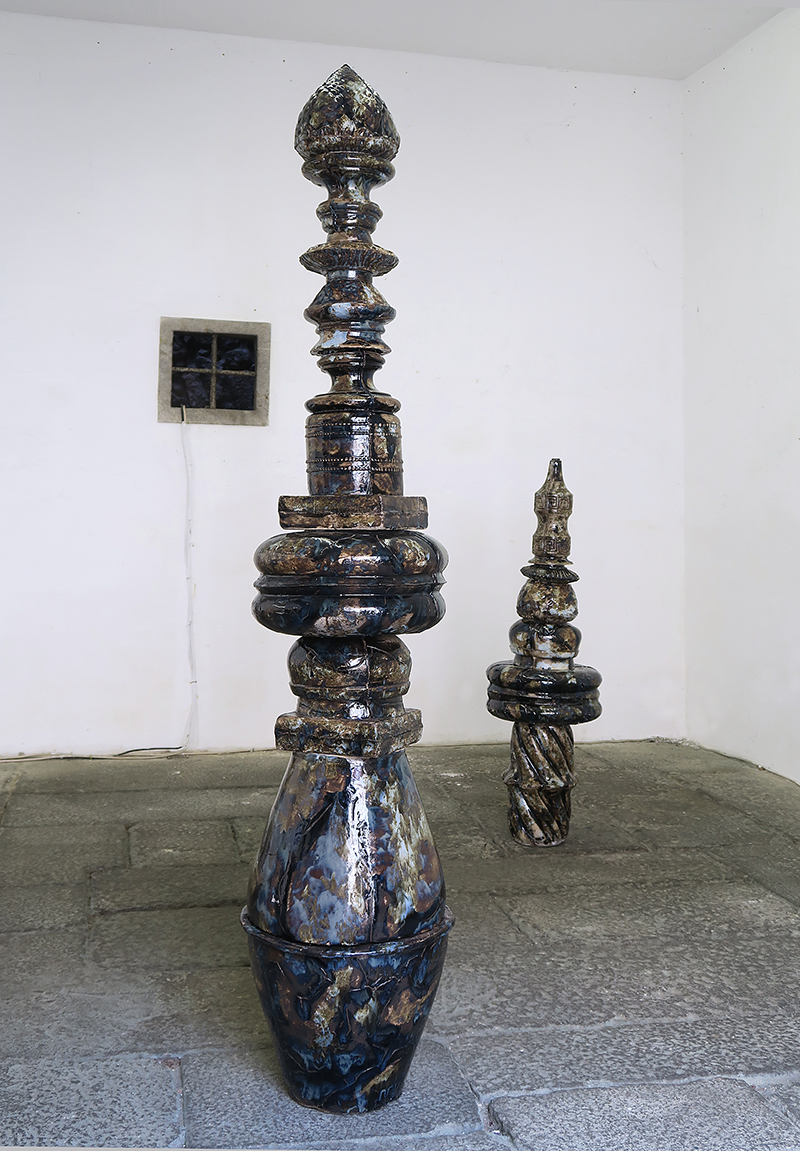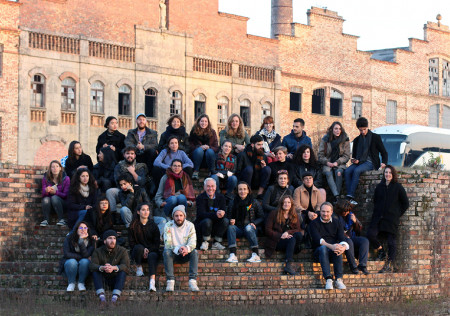- The school
- Studies and Research
- BACHELOR
- MASTER
- DOCTORATE
- RESEARCH
- TRANSDISCIPLINARITY
- POOLS
- CONTINUING EDUCATION
- Continuing education 2025-2026
- Artificial Intelligence, initiation
- Artificial Intelligence, Advanced
- Artificial intelligence open-source, ComfyUI
- Creative coding
- Engage with drawing
- Frame-by-frame animation
- Immersive Mapping : Unreal Engine & MadMapper
- 3D exhibition modeling in SketchUp
- 3D modeling, Blender
- Point cloud scanning
- Documentary podcast
- Serious games
- For students
- Studying at the HEAD
- InfoLab
- Living in Geneva
- Tuition fees and sholarship
- Library
- Regulations and instructions
- Projects
- Events
- Press
- Partnerships and prizes
Architectures céramiques, de la structure à l’ornement
Flux Laboratory
Rue Jacques-Dalphin 10
1227 Carouge
ECART, the European Ceramic Art & Research Team, is a network bringing together ve higher education art schools to reflect on various issues that question ceramics as a medium, in the fields of both art and design. This network promotes and facilitates exchanges between schools, as well as the mobility of students and teaching staff, so as to face the shifting and evolving situation of ceramics today.
La Haute école d’art et de design – Genève, CERCCO, L’École Nationale Supérieure des Arts Visuels de La Cambre, Bruxelles, L’École Nationale Supérieure d’Art de Limoges L’École Supérieure dʼArts Plastiques de la Ville de Monaco – Pavillon Bosio, L’École Nationale Supérieure d’Art de Nice – Villa Arson
For its fourth project, the ECART network — the European Ceramic Research Team — travelled to Portugal to take on a completely new challenge. Within the theme of ceramic architecture, around thirty stu- dents from the elds of art, design and architecture were set the task of collectively developing, making and displaying ve large-scale ceramic pieces. Since for most of them ceramics are not part of their primary practice, the adventure was all the more exciting.
The programme began with two days of theoretical sessions at the Villa Arson, giving the participants the opportunity to establish contacts, followed by four one-week workshops focused on the design, production, surface decoration and display of the pieces at the Casa da Capela das Malheiras, located in the centre of Viana do Castelo in Portugal.
The several highpoints of these workshops included a visit to the site of the former Campos factory, with its vast spaces and store of abandoned moulds, together with the totally new and rst-hand experience of work- ing in some of the region’s ceramic factories and, lastly, the construction of a paper kiln to re the 150 bowls from the Counter Space project.
This shared experience was complemented by a performance given
by around thirty folk dancers, followed by a convivial meal.
The immersion in Portuguese culture in the widest sense and more particularly from the perspective of the architecture with its ubiquitous azulejos, combined with the traditional food and the generosity of the welcome, despite the limited infrastructural means and the omnipresence of the industrial trades, allowed students to develop projects dealing with the concepts of gravity and colour, as well as with construction
and assembly techniques.
Various issues were raised by the ve completed projects, including subjects closely related to architecture, sculpture assembled with fragments, embossed architectural decoration made using historic plaster moulds and a series of modelled pieces linked to the other
four projects.
Opening
Saturday, September 28th - 11:30am to 5pm
Monday-Friday 11am - 6:30 pm
Saturday - Sunday 11am - 5pm
Guided visits:
Saturday. 28.09 & 05.10, 2pm
Sunday. 29.09 & 06.10, 2pm
Upload the ECART catalogue here
Upload the Programme Parcours Céramiques Carougeois 2019

"Derelict colonne", projet de Sylvie Brandao, Joao Cruz, Victoria Penanhoat, Johan Rosset
© Madgalena Gerber
© Madgalena Gerber

